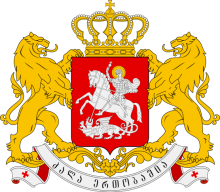Resource information
This Law establishes that public property can be movable and immovable objects, including plots of agricultural land and public forest. It establishes the terms and conditions for privatization of public property. Privatization of public property shall be performed in accordance with purchase and sale contracts. The following objects of public property shall not be subject to privatization: (a) subsoil; (b) water resources; (c) territorial water; (d) continental shelf; (e) state forest fund; (f) protected areas; (g) national parks; and (h) objects of cultural heritage.
Implemented by: Order No. 1-1/1980 of 2010 of Minister of Economy and Sustainable Development of Georgia on Privatization of Forests Located within Settled Areas (2012-09-13)
Implemented by: Resolution No. 15 of 2011 of Georgia Government on Starting Price for Rural Land Sold on Auctions (2012-09-17)



